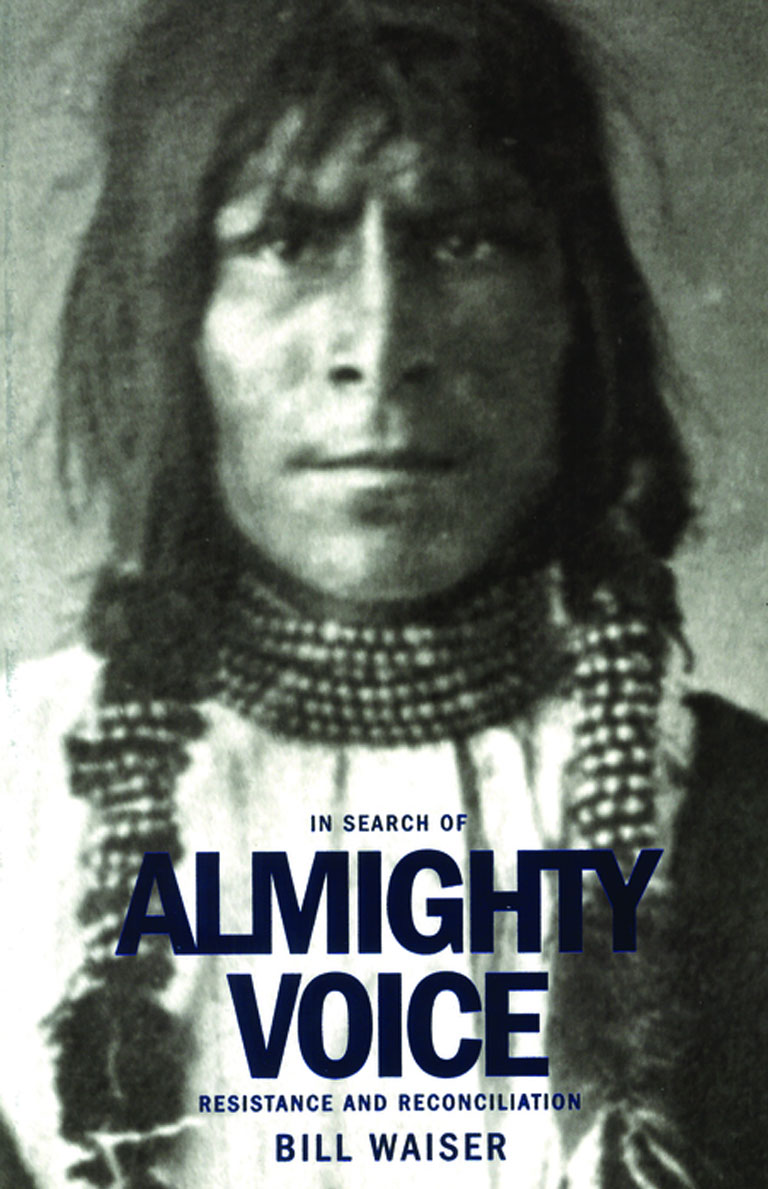In Search of Almighty Voice

In Search of Almighty Voice: Resistance and Reconciliation
by Bill Waiser
Fifth House
296, $24.95
In his latest book, Saskatchewan historian Bill Waiser seeks to discern fact from fiction in the story of a Willow Cree man who was killed by the North West Mounted Police in 1897. Along the way he reveals how the federal government’s policy of starving Plains Indigenous peoples (see in particular the book Clearing the Plains, by James Daschuk) led to desperate actions by people like Almighty Voice.
In 1895, Almighty Voice was twenty years old when he and two others butchered a settler’s steer that had wandered onto the One Arrow Reserve, where many people were dying of hunger and disease. Almighty Voice offered to replace the butchered animal with a horse. No matter. The Mounties arrested the three men, anyway.
Almighty Voice escaped custody, leading to a nineteen-month pursuit that resulted in the shooting deaths of three Mounties and one postmaster. About one hundred NWMP officers eventually cornered him on May 30, 1897, at Batoche, where they killed Almighty Voice and his two companions in a heavy bombardment of bullets and shells.
Among his people, Almighty Voice became a legend, the focus of a story of resistance against harsh, unjust government measures. To government officials, however, he was simply a “bad Indian.”
In In Search of Almighty Voice, Waiser seeks to correct the many inaccurate portrayals of Almighty Voice that can be found in articles, books, plays, and films. As Waiser writes, the “Willow Cree man mattered. Understanding why he mattered has a direct bearing on reconciliation efforts today.”
Themes associated with this article
Advertisement




